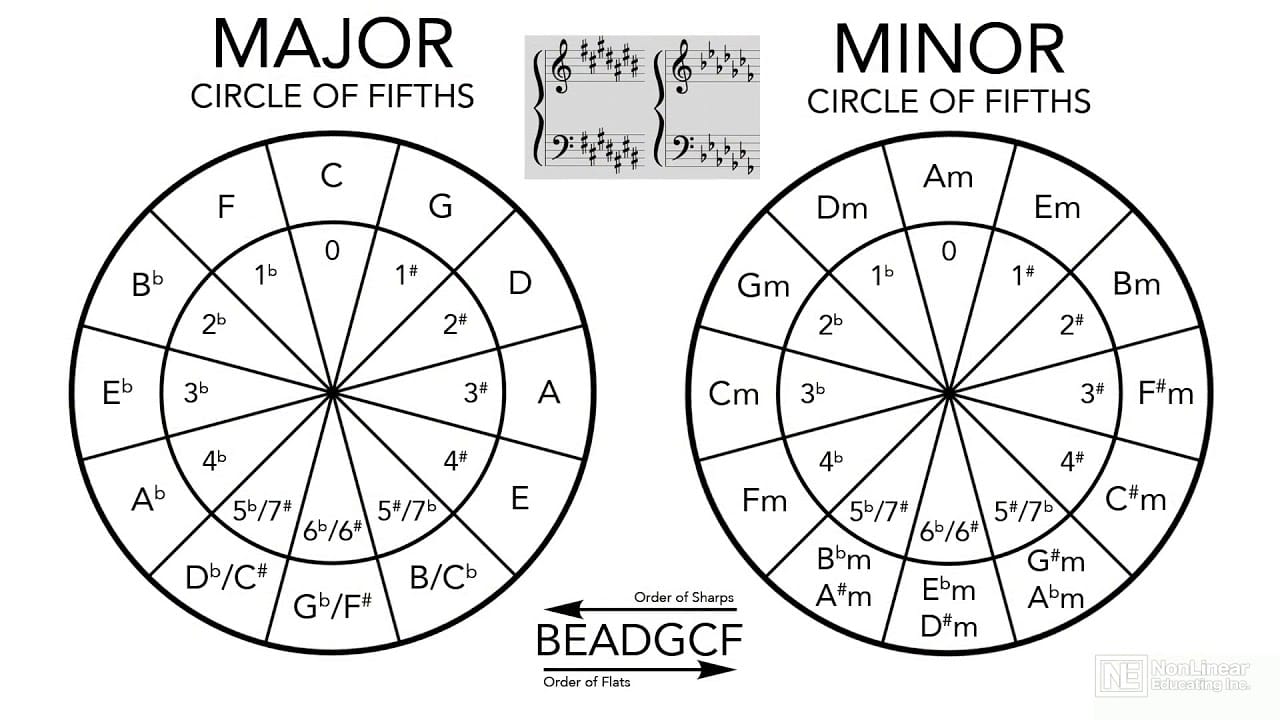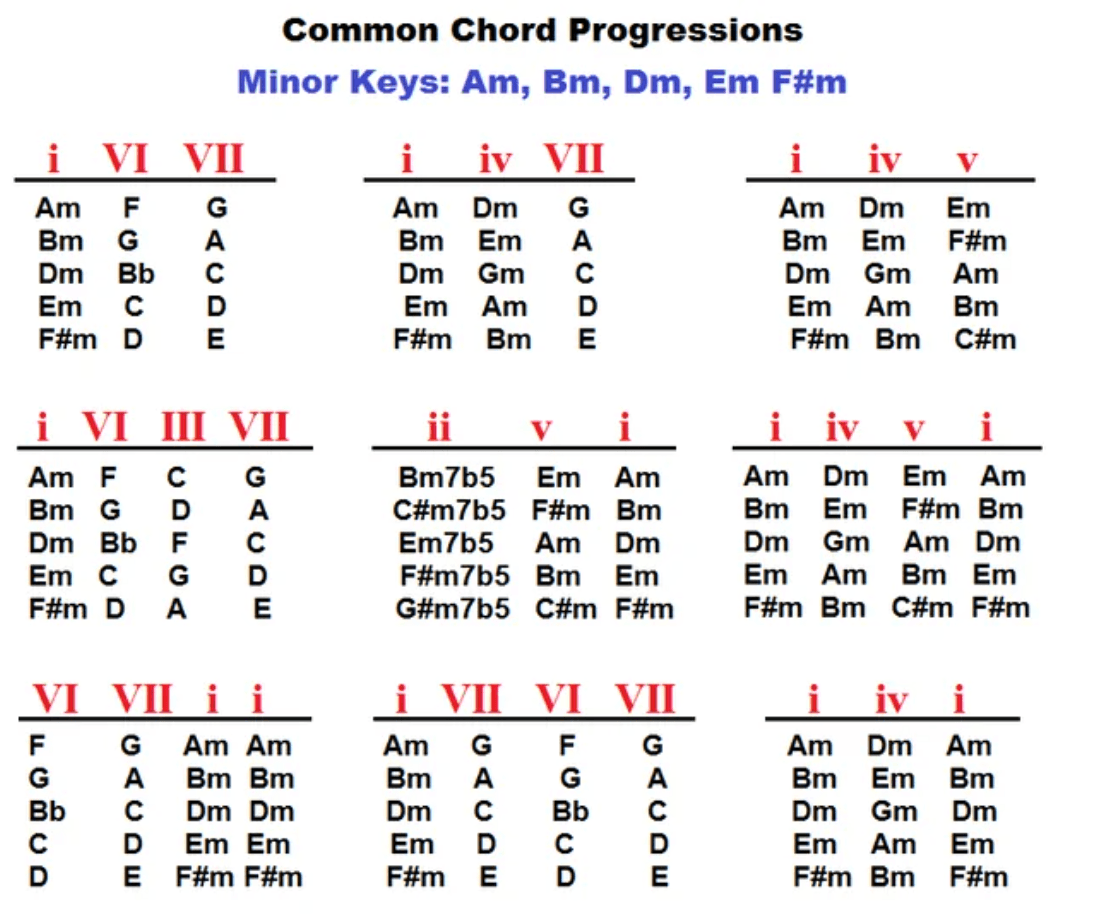What is Music Theory?

Mastering music theory can improve your composition skills and help you create more compelling, intentional melodies and harmonies.
Many songwriters face the common challenge of writing bland or uninspired songs. Music theory is the solution to transforming your work into something extraordinary.
It examines the language and notation of music and analyzes the fundamentals of melody, harmony, and rhythm. By studying music theory, you gain a framework for understanding the structure, patterns, and relationships within music.
This knowledge allows musicians to communicate ideas and comprehend the mechanics behind music creation. Understanding music theory deepens your appreciation of music and enhances your ability to create it effectively.
It empowers songwriters to craft songs that are both structurally sound and emotionally impactful.
Why Learn Music Theory?
- Enhances Creativity: Learning music theory unlocks new creative possibilities by providing tools to explore different musical ideas.
- Improves songwriting skills: It enables you to write more intentional and sophisticated melodies and harmonies. [10 Must-Try AI Music Composition Tools for Modern Musicians]
- Solves common problems: Helps overcome creative blocks and prevents writing songs that sound bland or uninspired.
Music theory can elevate your compositions from simple to complex, adding depth and richness. It allows for better expression of emotions and themes in your songs.
Music Theory for Beginners
Embarking on your journey with music theory is never too late. Here's where to start:
- Notes and Scales: Notes are the basic building blocks of music, and scales are sequences of notes ordered by pitch. Understanding scales is crucial for creating melodies.
- Intervals: An interval is the distance between two notes. Intervals form the basis of melodies and harmonies.
- Chords and Harmony: Chords are groups of notes played together, while harmony is the combination of simultaneously sounded musical notes. They are fundamental for creating chord progressions and harmonies in song.
- Rhythm and Meter: Rhythm is the pattern of sounds and silences, and the meter is the grouping of beats into measures, vital for establishing the groove and feel of a song.
Start with one concept at a time and practice regularly. Use familiar songs to identify and understand these elements. For more information, refer to Better Songs

Understanding Scales in Music
Scales are the building blocks of melodies, defining the notes available in a composition.
- Major Scales: Bright, happy, and uplifting.
- Minor Scales: Sad, emotional, and somber.
- Pentatonic Scales: Versatile and universally pleasing.
Experiment with different scales to evoke various emotions and atmospheres. Combine scales or shift between them for dynamic effects.
Mastering Chord Progressions
Chord progressions serve as the harmonic backbone of a song and greatly influence its emotional direction and mood.
- Common Patterns
- I-V-vi-IV: Found in many pop songs like "Let It Be" by The Beatles. This creates a familiar and pleasing sound.
- ii-V-I: Common in jazz standards, providing a smooth and resolved harmonic movement.
Create unique harmonies by altering common patterns with substitutions, employing inversions, or using modal interchange. For additional guidance, check Improve Songwriting: https://improvesongwriting.com/why-is-music-theory-important/.
Integrating Songwriting Theory and Music Theory
Songwriting and music theory work hand in hand. Music theory provides the tools and language, while songwriting theory applies these tools to song structure and lyrical content. Use theoretical frameworks to structure your songs, create tension and release, and enhance creativity. Let theory inform your choices without dictating them.
Effective Ways to Learn Music Theory
Explore these resources to deepen your understanding:
- Online Courses and Tutorials: Platforms like Coursera, Udemy, and YouTube channels such as "Music Matters" offer flexible learning schedules.
- Music Theory Books: "The Complete Musician" by Steven G. Laitz and "Music Theory for Dummies" by Michael Pilhofer provide comprehensive coverage.
- Private Lessons: Personalized instruction from local music schools or online tutoring platforms provides immediate feedback.
- Practice Exercises: Engage in activities like writing melodies, harmonizing, and ear training exercises to reinforce learning.
Consistent study and application are key. Join forums or groups for collaborative learning. For further exploration, visit [Empowering Musicians: The Impact of AI in Music Education]
Applying Music Theory to Avoid Bland Songs
Here are strategies for more engaging songwriting:
- Use unusual chord progressions, incorporating diminished or augmented chords.
- Experiment with different scales, like modes or exotic scales.
- Play with rhythm and meter, using syncopation or time signature shifts.
- Incorporate modulation, changing keys mid-song for dramatic shifts.
Experimentation leads to personal growth as a songwriter. Theory provides tools, but creativity comes from personal expression. For inspiration, see [Secrets of Songwriting]
Learning music theory is an investment in your songwriting journey. It provides you with the tools to create more intentional and emotional music.
Embrace the journey of learning music theory, and your compositions will transform from simple ideas into complex, beautiful pieces of art.


